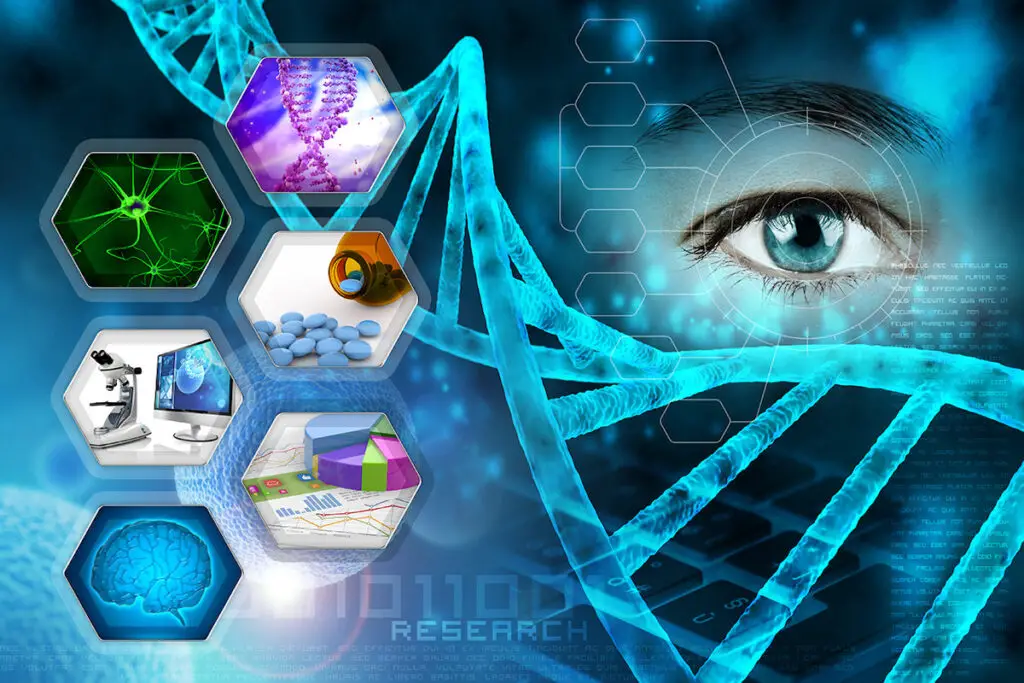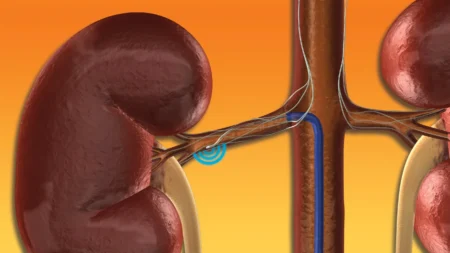Scientists in Tanzania are making headway in biotechnology to improve agriculture and healthcare in the country as global scientists continue to improve the biopharma industry and use of AI in drug development.
“Machine learning will end up being an absolutely critical, pivotal shift—a paradigm shift—in the sense that it will touch every single facet of how we discover and develop medicines , and accelerate and improve every single one of them,” Daphne Koller CEO and founder, insitro.
From AI-driven drug discovery industry in the US to biotech agriculture in Tanzania, machines are increasingly determine what we eat, what drugs to cure us, machines run our lives.
The Tanzania Agricultural Research Institute (TARI) is an agriculture biotech company funded by among other organizations, the International Institute of Tropical Agriculture (IITA).
IITA backed agricultural innovations at TARI include a tool to diagnoses plant diseases using just a mobile phone. From digital solutions to measure soil health to Apps that provide agronomic advice and recommendations, Tanzanian scientists are increasingly turning to AI to improve farming in the country.
It is amazing, Tanzania biotechnology, AI, biopharma industry are all revolutionizing healthcare and agriculture.
Halfway across the world in the US, scientists are making headway with AI technology to diagnose and scale up research. AI in biopharma is the future and scientists are working to fully integrating AI into the scientific process.
Biopharma companies are looking to harness AI to generate quality drugs and to do so, as quickly as possible and with the highest probability of success.
Also Read: Biotechnology potential for sustainable agriculture in Africa
The process of discovery of treatment in pharmaceuticals has been marred with attrition making it inefficient. However, with AI, the process is becoming more efficient in the discovery of effective drugs for patients.
Using AI, scientists are able to identify the most promising compounds for drug testing so efficiently that fewer experiments have to be conducted to achieve successful results.
A whole new AI driven drug discovery industry is developing and attracting huge amounts of capital investment.
While scientists in the US perfect AI for drug development, back in Tanzania, scientists are training rats to sniff out disease, its biotechnology alright.
“The use of giant rats to sniff out the potentially deadly disease tuberculosis (TB) in Tanzania is set to nearly double by the end of the year thanks to successful detection rates,” reported the Voice of America (VOA) recently.
The three feet long African giant pouched rats are so good at detecting TB due to their heightened olfactory capabilities, that in Tanzania, they are used in over 60 clinics countrywide.
The rats are trained to spot TB in human mucus, and have been used in Tanzania since 2007 . The experiments were first introduced by the Belgian charity APOPO in an effort to find alternatives to the more costly and slower chemical testing that was used traditionally.
The trained rats take just 20 minutes to screen 100 samples, that’s about 5 sample per minute, a much faster rate than the days it would take regular lab tests. The rats also come in at a shocking 100 percent accuracy.
So good are these rats that scientists have even found military use for them, detecting landmines.
Nicknamed Hero rats, the Sokoine University in Morogoro Tanzania, the rats are renowned as the most competent mine locators and are trained to sniff out landmines to assist in clearing minefields.
From Tanzania to elsewhere in the world, the giant rats are deployed to detect explosives as far as Cambodia and Colombia.
From, Apps to detect diseases in crops, to trained rats to detect disease in humans, Tanzanian scientists are making headlines. Just as well, because with global warming and worsening climate change, Tanzania’s agriculture is increasingly facing low crop output, it is time for another scientific biotech innovation.
With development, Tanzania biotechnology, biopharma industry, AI Tanzanian scientists are now developing and deploying Genetically Modified (GM) maize varieties that are drought tolerant and insect resistant. As a matter of fact, they have already developed cassava varieties that are resistant to the Cassava Brown Streak Disease (CBSD).
Also Read: Gender-responsive research key to agricultural productivity
The future of biotechonology in Tanzania
Even though, or because of, Tanzania making such headway in biotechnology, only last year, the country cancelled research trials of genetically modified organisms (GMOs). Not only has Tanzania cancelled its own trials but the country now wants more biosafety scrutiny of all imported GM seeds.
The country has made the move in an effort to conserve it’s ‘genetic resources and local seed varities’ authorities explained.
Positive or negative, the country would not have een ale to make such a bold move if it did not have acclaimed scientists to challenge the norm.
Experts explain that, ‘biotechnology is the technologies applied to biology, molecular biology, genetics, and many other subfields of biology.’
In theory, biotechnology adopts cellular and biomolecular processes to create technologies and even products that are meant to help improve lives. However, the same technology that is used for good can be used for evil.
For example, critics of GMOs argue that multinational corporations are developing seeds that are designed not to re-grow.
If a seed can only e planted once, then the grains it bares cannot be replanted and grown, then the user, in this case poor peasant farmers in Tanzania, are forced to buy new seeds every planting season, big businesses for the seed producers.
Pro biotech advocates on the other hand maintain that; “Recent biotechnology develops breakthrough products and technologies to fight diseases, reduce our environmental harm, feed the hungry, use less and cleaner energy, and have safer, cleaner and more efficient industrial manufacturing processes.”
At the end of the day it is big businesses that always win, not the defenseless poor farmer on the slopes of the Usambara mountains or the unsuspecting herdsman in the plains of the Serengeti.
So today, more than 13.3 million farmers all around the world are ‘forced’ to use agricultural biotechnology in the name of increasing yields or preventing disease and pests etc.
The limitless potential of biotechnology cannot be denied, Tanzania biotechnology, AI, biopharma industry are all vital but the only question that stands in the way of science is who will protect the less learned common man?
We cannot all be scientists, governments have the responsibility to protect their public against unscrupulous big businesses that will go to any length to make profit, even if it means selling seeds that cannot re-grow to the poorest of farmers just to force tattered clothed impoverished farmer to keeping buying.
A Christian saying stands true; ‘those without will be robbed of the little they have and it will be given to those who already have!’











